Covid: Parents 'were treated like criminals' as their son lay dying
- Published
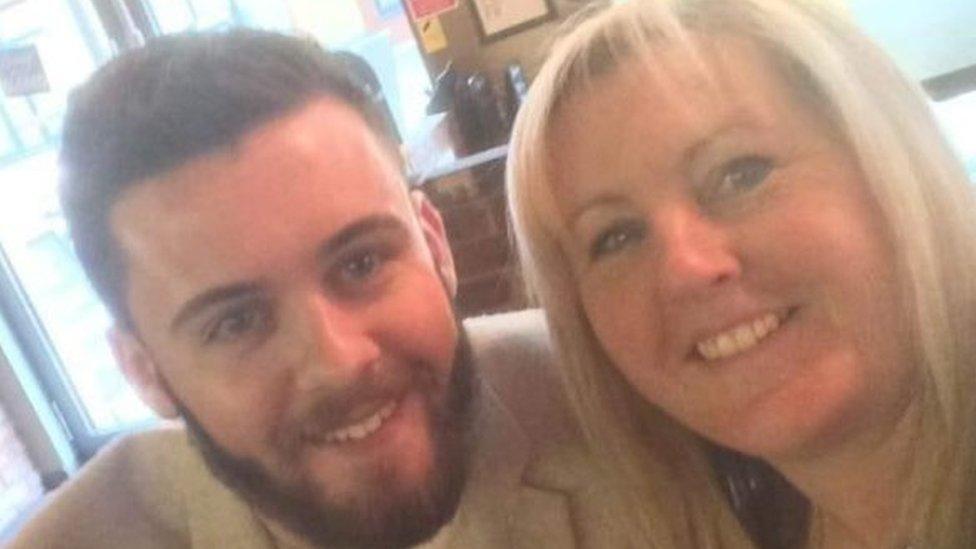
Ollie had a very big heart and ordered warm clothes for homeless people who lived near the hospital, his mother Penny said
Parents prevented from seeing their dying son in his final weeks have said they were treated "like criminals".
Ollie Bibby, 27, from South Benfleet, Essex, died of leukaemia in hospital on 5 May, a day before Matt Hancock was filmed kissing a colleague, prompting his resignation as health secretary.
Penny Bibby said she was "livid" Mr Hancock broke social distancing rules.
University College London Hospital (UCLH) said it would "learn from her family's experience".
Mr Bibby, who lived at home with his mother Penny and father Simon, was diagnosed with acute myeloid leukaemia, a cancer of the white blood cells, in 2016.
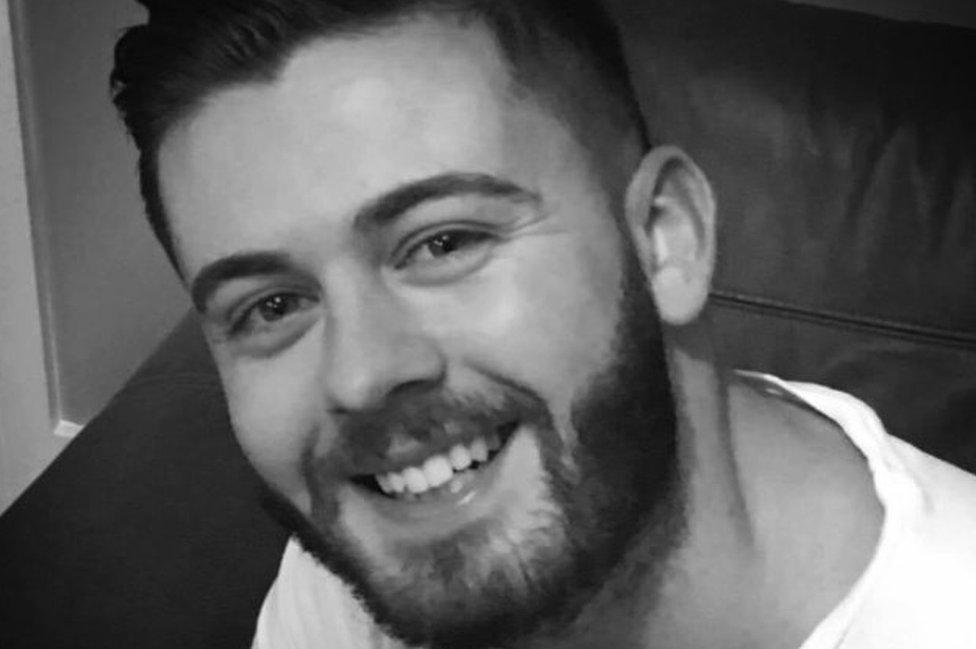
Ollie was a non-materialistic, old-fashioned person with lots of friends and a passion for football, his family said
After four years in remission, he relapsed and needed a bone marrow transplant last summer.
In March he was admitted to UCLH, where he stayed for seven weeks until he died.
He felt like he was "in prison" and "begged" to see his family, but they were "barely allowed in" due to Covid restrictions, his mother said.
"I'm disgusted - for that man to be carrying on like that, and us following the rules," said Simon Bibby.
"We feel cheated out of the last six weeks of his life."
Mrs Bibby said: "I'm livid. We did everything we were told to do and the man that made the rules didn't. How can that be right?"
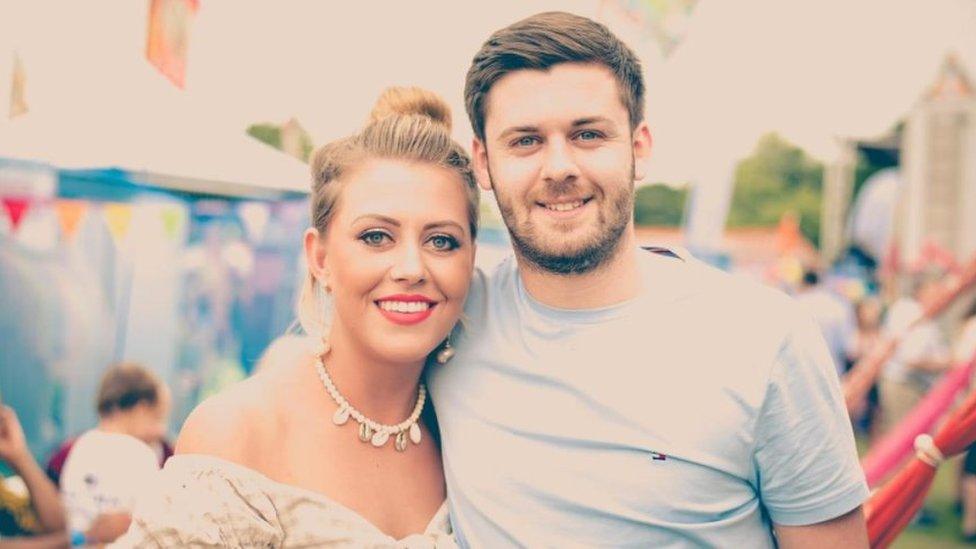
Ollie's girlfriend Georgia was only allowed to see him twice in the seven weeks he was in hospital before he died
Describing her son's time in hospital, she said: "Ollie was in a room on his own and it was horrific for him. He suffered from anxiety and depression and he would just spend all this time on his own, worrying about his future.
"It was clear that the hospital did not want us there. We felt like we were criminals. The security staff would be better off at a nightclub, they were so aggressive.
"We just wanted to comfort our son. He felt like he was being punished for being ill. He was not even allowed to see a counsellor. The way he was treated was barbaric and inhumane."
No visitors were allowed at all when Mr Bibby was first admitted, but the rules later changed to allow one visit a week from one nominated person, she said.
The family spoke to their MP, Conservative Rebecca Harris, who persuaded hospital bosses to increase this to two visits a week for one person.
"I understand hospitals need to keep people safe from coronavirus, but we were shielding and taking lateral flow tests and doing everything possible to protect Ollie," Mrs Bibby said.
They drove an hour and a half from their home to the hospital after he phoned crying, saying he was bleeding and pressing his buzzer but was being ignored.
"This was the start of his internal bleeding; he was petrified. My husband was thrown out by a bouncer-type security guard. We were told they could only bend the rules in exceptional circumstances, but we couldn't work out how more exceptional it could be," she said.
'How many more patients need to die alone?'
As his health deteriorated, Mr Bibby refused to go to intensive care unless he could see his parents.
"They couldn't control him, he was in such a state that they eventually agreed, and that was the only reason we were able to be there when he died," said Mrs Bibby.
"Nurses were constantly asking us why we were in there and if we were allowed. It made a horrendous situation 50 times worse."
She said her other three sons were "really suffering" after being denied the chance to say a "proper goodbye".
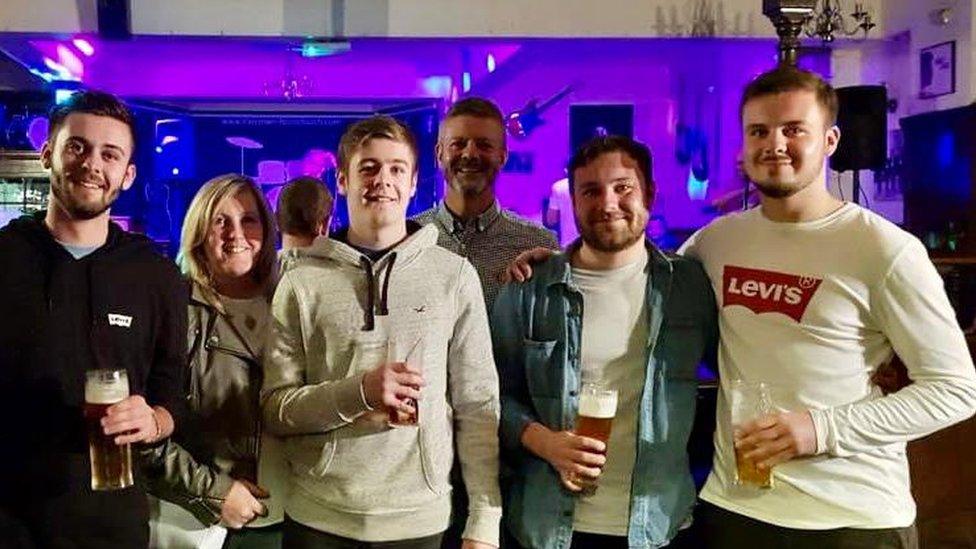
Ollie was very close to his family, including his three brothers Sam, Casey and Ronnie
"Ollie was really close to his three brothers but they were only allowed to see him once in seven weeks, for just 10 minutes, the day before he was put on a ventilator, when he was semi-conscious."
The family would be making a formal complaint to the hospital, Mrs Bibby added, in the hope that some rules could be changed for future patients.
"We do not blame the staff, they were just following the rules, but people higher up need to understand how traumatic this has been and work out a plan for each individual patient," she said.
"We were lucky that we were with Ollie when he died, but so many families haven't been able to say goodbye to their loved ones. How many more patients need to die alone, for them to listen?"
A spokesperson for UCLH said it would like to offer the family "our sincere condolences".
"We are confident that Ollie received appropriate care and treatment and that regular visits were allowed in line with hospital guidance," they said.
"We understand that having limits on visitors can be difficult, but these are necessary to protect patients from Covid-19, particularly the most vulnerable. We are in touch with Penny so we can learn from her family's experience."

Find BBC News: East of England on Facebook, external, Instagram, external and Twitter, external. If you have a story suggestion email eastofenglandnews@bbc.co.uk, external
- Published28 June 2021
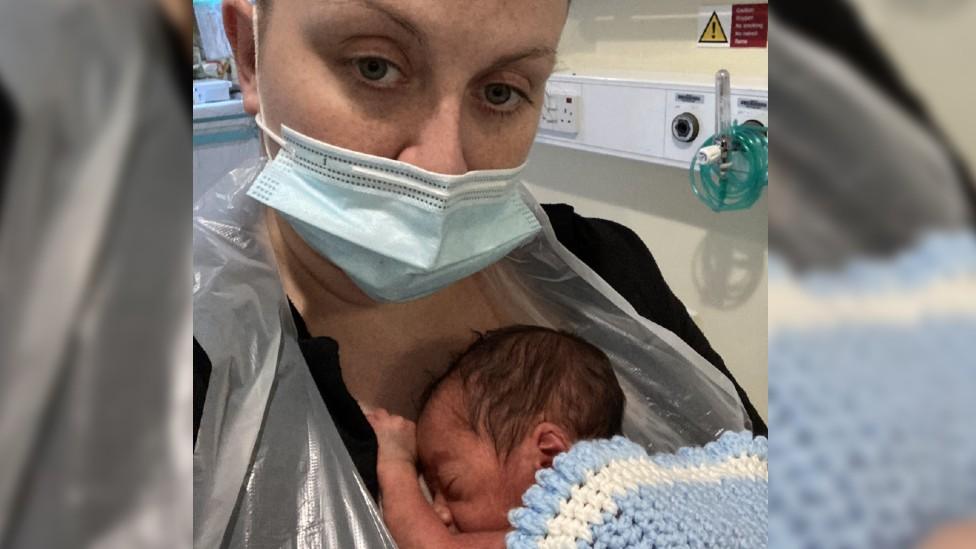
- Published26 June 2021
